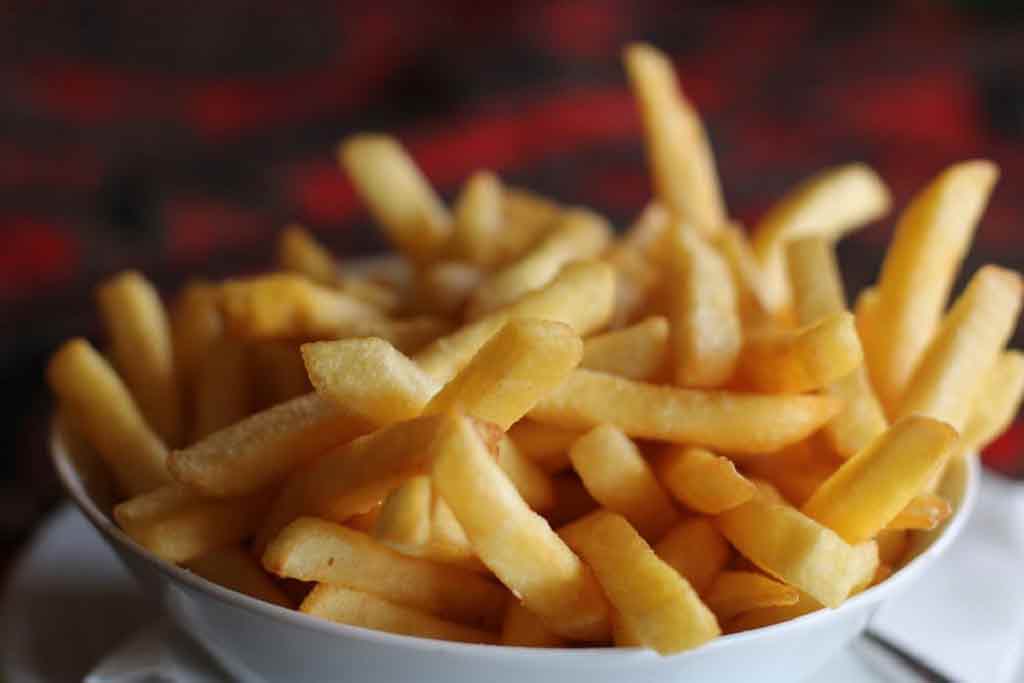Weight loss 'wonder drug'?
Obesity
A drug that allows you to eat as much junk food as you like without putting on a pound, is reported in the Daily Mail today. The newspaper also said the drug gives the
A drug that allows you to eat as much junk food as you like without putting on a pound, is reported in the Daily Mail today. The newspaper also said the drug gives the benefit of exercise without having to move a muscle, and adds that it may also prevent diabetes.
But the research reported on was carried out in mice and the drug may or may not work in people.
This research found that mice given the drug, codenamed SRT1720, who were fed a high fat diet were found to gain less weight than expected. However mice are different to humans in many ways and cannot be considered comparable. Much further research will be needed before going on to test if the drug works and is safe to use in humans.
SRT1720, is reported to mimic the ‘wonder ingredient in red wine’, resveratrol, and is said to ‘fool the body’ that food is scarce and that it needs to live off fat.
Where did the story come from?
Jérôme N. Feige and colleagues from the Institut de Génétique et de Biologie Moléculaire et Cellulaire, Illkirch, France, carried out this research. Financial support was obtained from various grants. Three of the authors were directly employed by Siritis Pharmaceuticals, a company that develops SIRT related therapies. The study was published in the (peer-reviewed) scientific journal: Cell Metabolism.
What kind of scientific study was this?
In this experiment, the researchers investigated what happened when mice were treated with the drug SRT1720. As reported in the newspapers, this synthetic substance mimics the actions of resveratrol, which occurs naturally in red wine. Both SRT1720 and resveratrol activate the enzyme SIRT1. This enzyme is normally activated when the body is given a calorie-restricted diet and controls its metabolism when there is low nutrient availability. During this time, it breaks down body fats and generates glucose. The researchers hoped to activate this enzyme with the drug SRT1720, with the aim of proving its ability to treat diet-induced obesity and its associated disorders. The concept has previously been demonstrated by treating mice with resveratrol.
Seven-week-old male mice were fed for 10 weeks with either a standard or high fat diet. Some of the diets were supplemented daily with either 100mg or 500mg per kg of SRT1720. The researchers measured the fat content in the mouse liver and faeces and used laboratory methods to examine how and where the substance metabolised in the body. They also examined the oxygen consumption of the mice.
What were the results of the study?
The researchers found that SRT1720 was a strong and specific activator of SIRT1. The chemical was reported to be about three times more effective at activating the enzyme than resveratrol (8.7 fold compared to 2.6 fold).
Mice that were given the high fat diet with the 500mg/kg daily dose of SRT1720 did not gain weight after 10 weeks. The lower 100mg dose also showed some partial protection. The researchers say there are signs that the animals’ metabolic rate increased, indicated by an increase in oxygen consumption.
The researchers also found increased fat levels in the mouse faeces, but no signs of liver injury or gastrointestinal change. They say that it enhanced insulin sensitivity, increasing levels when a glucose-heavy meal was given to the mice and keeping levels low when in a fasting state with enhanced metabolism in skeletal muscle, liver and brown fat tissue. They suggest this shows the drug may protect against the development of diabetes.
There was reduced fat accumulation in the bodies of the mice who received SRT1720. When the mice were given endurance and running tests to test their skeletal muscle function, those whose diet was supplemented with SRT1720 became better endurance runners, and ran about twice as far before becoming exhausted. The researchers say that the complex metabolic process by which the overall effects of SRT1720 were produced mimicked that which would be seen when energy levels in the body were low.
What interpretations did the researchers draw from these results?
The researchers conclude that their study and otehr research supports the idea of using SIRT1 to treat metabolic disorders and gives insight into the mechanism of SIRT1 activation.
What does the NHS Knowledge Service make of this study?
This research investigated the effectiveness of this drug in activating SIRT1, an enzyme involved in body metabolism when energy sources are low. The findings give an insight into the mechanisms involved in SIRT1 activation, and suggest that it could be a target for the treatment of metabolic disorders.
However, conclusions about the use of SRT1720 are limited. Mice and their metabolism are distinct from humans and their biology. Further research is needed to test the drug’s effectiveness and safety in humans.
There is no evidence to support the Daily Mail’s claims that junk food could be eaten without gaining weight, or that the benefits of exercise can be had without actually exercising. A healthy diet and regular exercise remain the best approaches to optimal health.
Sir Muir Gray adds...
If you want to lose weight, add an extra 10 minutes walk a day to your routine and leave this drug to obese mice.






 Subscribe
Subscribe Ask the doctor
Ask the doctor Rate this article
Rate this article Find products
Find products





